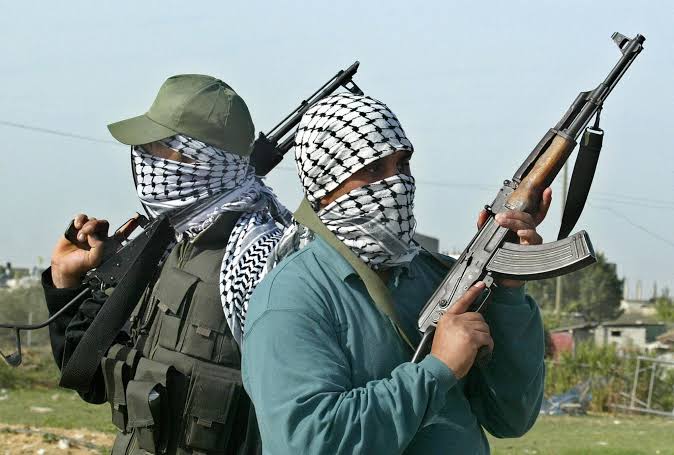

The communique below was adopted by the Board of Trustees of Northern Youth Empowerment and Enlightenment Forum (NYEEF) at its 1st National Security Roundtable Discussion on Arewa Lives Matter held on 12th December 2020:
MULTIDIMENSIONAL APPROACH TO SOLVING THE LINGERING AND ESCALATING SECURITY PROBLEMS IN NORTHERN NIGERIA.
The Nigeria security agencies are integral to the survival of any government and peaceful co-existence of the citizenry. No society can function effectively in an atmosphere of insecurity and fear of free movement. To achieve maximum security for the citizens, Nigeria as a strong emerging economy established several security agencies having the belief that there is “Strength in Number”. Hence, the establishment of different security agencies as they are critical component of every Nation with enormous task of maintaining Law and Order as well as Protecting Lives and Properties of the people.
Every security Agency of the Country has its mandate which will culminate into the overall success of the National Security Organizations; Nigeria has so many Security Agencies.
It is therefore disturbing to see that despite the plethora of these security Agencies, the prevalence of insecurity and threat to peace in the full glare of these agencies is prevalent. There is no doubt that these security agencies in their various capacities are achieving some level of success in their roles.
However, instead being seen as assets they are becoming more of a liability due to lack of synergy between the security agencies that often leads to uncalled for rivalry. A country where Judges and politicians are being kidnapped and huge ransoms are being paid; a country where the health sector is in a comatose; a country where security officials who are meant to protect citizens, take their lives instead; a country where ethnicity has eaten deep into her bowels.
Oh Nigeria! One begins to wonder what the fate of the common man would be if the elites are not safe. Nigeria, especially the Northern part of Nigeria is indeed faced with multiple and escalating security challenges at the moment. These security challenges have led to loss of lives and properties. They have also adversely affected the economy of the region; which in turn led to the rise of the poverty level, hunger and diseases. At the moment, the rate at which the level of insecurity is going, pose a serious threat to the coexistence of Nigeria as a whole. There seems not to be hope of curbing the deteriorating security challenges in sight. It is confusion galore and a blame game even on the part of all tiers of Governments. There is the need to act fast so as to curtail the situation and bring the region back on track.
The security challenges have now culminated to a hydra-headed monster with Boko Haram in the North East, Cultism in the North Central, Kidnapping, Banditry, Armed Robbery, Cattle Rustling and Gangsterism all over the North. In light of the above, the possible causes and contributing factors are hereby identified so as to have a frame of reference for action:
1. Long neglect of the rural and nomadic communities. This has led the youths and children of the neglected communities vulnerable to heinous crimes through cheap recruitment processes.
2. Poverty/harsh economic conditions. This has also led people, especially youth, to crime as a means of survival. By this initiation, such criminals eventually graduate to higher levels of criminality.
3. Poor education service delivery. If the Governments at all levels had paid more attention to educating its citizenry, the recruitment process of criminals would have been controlled to a large extent. Criminals capitalize on illiteracy to recruit and initiate young people into crime. By this, even the “Nomadic Education” has practically failed to achieve its cardinal objective.
4. Protracted period of cattle rustling. Governments at all levels have carelessly failed to address this issue for a very long time. Hence, the people whose animals were rustled have easily joined the criminal gangs either for vengeance or as a last resort for survival.
5. Protracted period of farmers/herders conflict. Governments have also failed to address this issue for a very long time. Hence, the issues of cattle routes and grazing reserves have also been a source of armed conflict. This and by extension has led to retaliations, counter-retaliations and banditry.
6. Proliferation of fire arms and ammunition. There are many fire arms now in the hands of the people more than ever before. Hence, criminals take advantage of this window to get well armed, at times with more sophisticated weapons than the security forces. The gun merchants are having their days; nearly unabated.
7. Porous land and sea borders. Most of the fire arms used by criminals do come through the borders. Hence, criminals take advantage of our porous borders to get well armed, at times with more sophisticated weapons than the security forces.
8. Informants/Spiritual aids is one area that nobody seems to be looking at. Information they say is power. Most criminals get their information from their informants who live in our mist; without which they cannot operate. Their spiritual aids also give them charms and enhance their confidence.
9. Double standards by security agents. Some security agents have allegedly been assisting the criminals with information and other logistics. For example, the case of Wadume, the kidnapper, in Taraba State, and many more.
10. Lack of motivation and welfare for our security personnel. Most of our security personnel, especially the junior ones, are also hit by the harsh economic situation in the country. Hence, making it difficult for them to cater for their families or even to feed well in the warfronts. This is a serious demoralizing factor for a person whole laid his life to protect other lives. For example, a Colonel whose salary is around ₦400,000 per month is practically earning less than a thousand dollar per month.
11. Corruption in the security cycle. There are serious allegations of massive corruptions, especially in the top echelon, in the security cycle. Many video clips and confessions of serving officers have gone viral on these allegations. Unfortunately, the Government has refused even to set up an enquiry panel to investigate these allegations.
12. Lack of modern warfare equipment. Most of weapons used by the security personnel are stale and even inferior to the ones used by the criminals.
13. Poor handling of criminal cases, especially the cases of banditry and kidnapping, by our judiciary. Many criminals are either put on remand or even released on bail. Hence, we are recycling them. The full wrath of the law and stiff penalty has not been meted on the criminals. This has significantly encourage crimes and by extension the rising level of insecurity.
14. Fake amnesty/reform programs. These unintelligible amnesty/reform programs for hardline criminals have also succeeded in recycling crime. This has also significantly encourage crimes and by extension the rising level of insecurity.
15. Government’s lackadaisical approach to security challenges. The Government is not proactive in curbing new security challenges, especially at early stage. It only becomes reactive when the problem is nearly getting out of hand.
16. Proliferation of illicit hard Drugs. The criminals use hard drugs to be able to operate.
17. There are allegations of local sponsors, political or otherwise, of most of the heinous crimes in the region.
18. There are allegations of international sponsors, politically, economical, religious or otherwise, of most of the heinous crimes in the region.
19. Intelligence gathering and sharing is insufficient. For example, no criminal has ever been arrested during ransom collection for years now. This failure has made the kidnapping business nearly risk free.
20. Telecommunications are left with no proper tracking mechanism as a result of millions of unregistered SIM cards.
In view of the above, some possible solutions are deduced as follows: The possible solutions are as follows.
1. Provision of basic amenities to the security agencies, this will increase their moral in being so effective to service delivery.
2. Provision of state of the art equipment and facilities to the security agencies.
3. The issue of whistle blowing should be giving a priority. People who come to give information to security agencies should not be harassed; this will be achieved by not making them to realize that their lives are in danger when they come to give a report.
4. The level at which the number of dismissed soldiers, police etc should be carefully taking care of. Because many of these dismissed personnel are finding it so accommodating to be in the midst of this criminals.
There is the need for Government to be proactive in dealing with security issues and threats, through modern methods of intelligence gathering, and intelligence sharing, training, logistics, motivation, and deploying advanced technology in managing security challenges. Another way is by creating an economy with relevant social, economic and physical infrastructure for business operations and industrial growth which also results in gainful employment. Corruption is bad not because money and benefits change hands in an unjust manner, and not because of the motives of participants, but because it privatizes valuable aspects of public life, bypassing processes of representation, debate, and choice.
In conclusion, it is worthy to state that the limited military and other security agencies cooperation in the North East operation against the Boko Haram insurgents and other Terrorist organizations particularly the cooperation of the military with the Department of State Services led to the achievement of great success in war. Same as in the war against Kidnappers in other parts of the Country.
However, it is worrying that there is perceived feud between the military services in the fight against Boko Haram by the populace to say the least. There are claims of uncoordinated Air strikes and Ground Troops operations or independent operations that reduce the effect or success of the battle. The recent directive by the President, Commander in Chief of the Armed Forces of Nigeria to Service Chiefs to cooperate and work together as expected by their mandate is achieving some results.
It is recommended that service Chiefs and Heads of other Security Agencies at both Federal and State levels synergizes and educate their officers and Men on the respect to each other’s mandate and create the needed synergy to achieve the overall success of the National Security framework.
Furthermore, there is the need for the Nigerian government, at all levels, to ensure that poverty is reduced and a realistic social security programme is pursued and implemented to ensure that the populace meets their basic needs.
National Roundtable Discussion on Arewa Lives Matter













